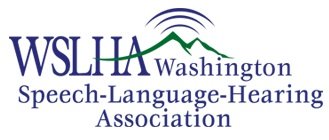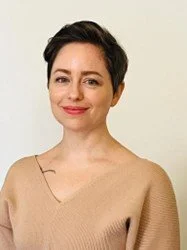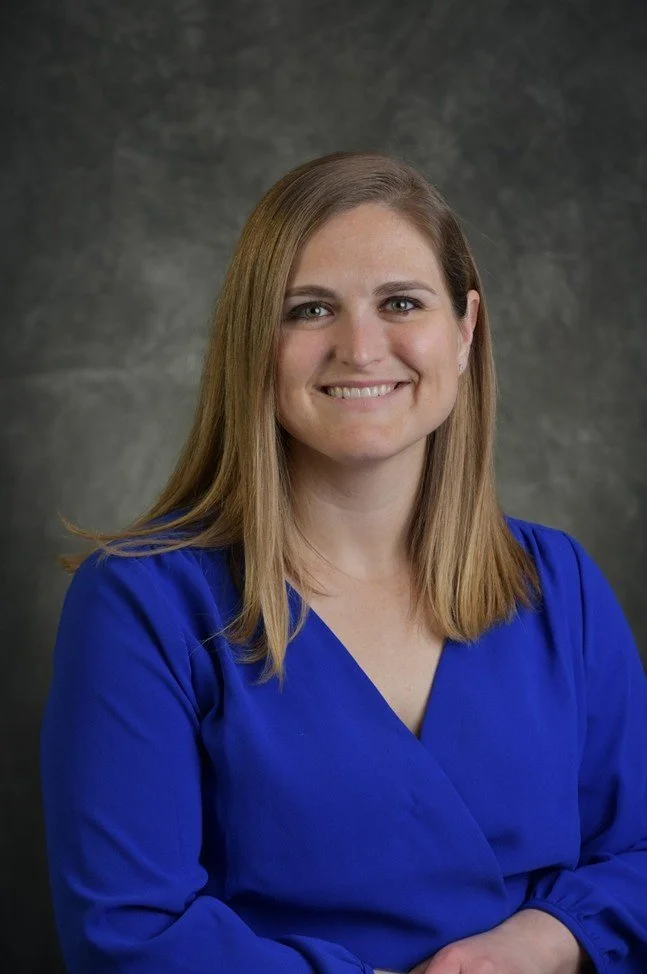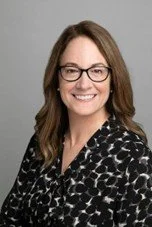Location: Live webinar with recording available for 2 weeks after the event date, (as soon as the recording is available on Saturday 9/13/25 through Saturday 9/27/25). CEUs and clock hours available for attending or watching the entire event.
Pricing: WSLHA Member - $89 | Non-Member - $129
Refunds: Cancellations made at least 3 days before the event will receive a full refund, minus a $3 processing fee. No refunds will be issued for cancellations made after this deadline.
Satisfactory Completion: In order to be reported for ASHA CEUs, OSPI Clock Hours, and receive a WSLHA course Certificate of Attendance, each registrant MUST register, attend or attest to viewing the entire course session, and complete the learner outcome assessment and course evaluation within two weeks of the course.
Registration will be closed on Friday, September 12, 2025 at 1:00pm.
Note for Registrants: Please indicate any special needs during registration for which you would like accommodation related to sensory (hearing, vision, or tactile support, etc.), physical limitations (mobility issues, chronic pain, etc.), learning disabilities, cognitive impairments, communication difficulties (speech impediments, language barriers, etc.), mental health concerns (anxiety, depression, etc.), neurodiversity (autism spectrum disorders, etc.), closed captioning, dietary or facility access needs, etc.).
About the Webinar:
Students, Speech-Language Pathologist Assistants (SLPAs), Associate Members, Speech-Language Pathologist Clinical Fellows (SLPCFs), Speech-Language Pathologists/Audiologists (SLPs/AuDs), Audiology Assistants, Life Members, Occupational Therapists, and Physical Therapists:
Please join us to learn how to support federal-level and state-level advocacy for yourself, your colleagues, and your profession in a 3-hour webinar initiated by the Washington Speech-Language-Hearing Association (WSLHA) Continuing Practice Committee (CPC) involving presenters from the American Speech-Language-Hearing Association (ASHA) and your WSLHA Lobbyist.
Two back-to-back presentations and a live panel question and answer period:
How Does ASHA Support Us Through Advocacy?; A Partnership to Achieve State Association Coding and Payment Advocacy Initiatives by Meghan Ryan, MSL and Caroline Bergner, JD
Tools for Change: A Guide to Effective Grassroots Advocacy by Melissa Johnson, JD
Live Question and Answer with the presenters: Meghan Ryan, MSL, Caroline Bergner, JD, and Melissa Johnson, JD
Your Knight in Shining Armor Isn’t Coming: Navigating Reimbursement Advocacy Efforts Nationally and Locally
Meet Moderator: Kate Pilant, M.S., CCC-SLP
Kate Pilant, M.S., CCC-SLP is a private practice owner and speech-language pathologist based in Seattle, Washington, and has worked in both private practice and public school settings. Experiencing firsthand the challenges of operating and maintaining a practice, particularly one that accepts insurance, she believes in the value of building clinical community across the state both within and across professions to strengthen advocacy efforts toward the needs of Washington clinicians.
Kate Pilant Disclosure: WSLHA Clinical Representative who is the WSLHA Board Liaison to the Clinical Practice Committee, ASHA State Advocate for Reimbursement (STAR), and ASHA State Advocate for Medicare Policy (StAMP); Private Practice owner.
How Does ASHA Support Us Through Advocacy? A Partnership to Achieve State Association Coding and Payment Advocacy Initiatives
Presenter: Meghan Ryan, MSL
Meghan Ryan, MSL, currently serves as ASHA's Director of Health Care Policy for Private Health Plans. She has worked at ASHA for 10 years, 8 of those years on the government relations and public policy team. Her undergraduate degree was in speech and hearing sciences and graduate studies in health care policy and law.
Disclosures: Meghan Ryan, MSL, is a salaried employee of ASHA.
Presenter: Caroline Bergner, JD
Caroline Bergner, JD, is ASHA’s director of health care policy for Medicaid. She serves ASHA’s membership by answering member questions, tracking Medicaid policies, and advocating with Medicaid state agencies, Medicaid managed care companies, and the federal Centers for Medicare and Medicaid Services (CMS). She also works with ASHA’s Committee on Medicaid and the State Advocates for Reimbursement (STAR) network. She is a Virginia-licensed attorney and has worked in health care policy for more than 15 years.
Disclosures: Caroline Bergner, JD is a salaried employee of ASHA.
Abstract: SLPs and audiologists are facing payment reductions across the country threatening the viability of their practices and access to care for their patients. Unfortunately, these reductions are not tied to the clinical value and expertise they provide but payer efforts to control spending. Providers are even more hamstrung by anti-trust laws that make trade association-based negotiation of rates very difficult. This session is designed to provide brief background on how Current Procedural Terminology (CPT) codes are created and valued. It will also walk through the various budget control mechanisms payers and lawmakers use that undermine the value of these codes and undercut the tremendous clinical value audiologists and SLPs contribute to the quality and outcomes of care across the lifespan and practice settings. Utilizing this information, session participants will be prepared to know the system and advocate with payers and lawmakers to help avert additional payment reductions.
Tools for Change: A Guide to Effective Grassroots Advocacy
Presenter: Melissa Johnson, JD
Melissa Johnson, JD is a lobbyist who focuses on health care, education, human services, and business issues for Washington state. For over 28 years, Melissa has advocated on behalf of her clients to the Washington State Legislature and the State Executive Branch.
Prior to joining Bogard & Johnson, where she is a current partner, Melissa was a staff member with the Department of Social and Health Services (DSHS) and the Washington State House of Representatives. She also practiced law in the Seattle area.
Melissa graduated with distinction from the University of Washington with a B.A. in Political Science. She received her law degree from American University’s Washington College of Law in Washington, DC.
From WSLHA: WSLHA recognized Melissa Johnson with the Distinguished Service Award. Melissa has provided over 28 years of service as our WSLHA Lobbyist. She advocates on WSLHA’s behalf with the Legislature, Department of Health, and multiple regulatory entities. Melissa provides consistent communication and education regarding the issues affecting SLPs and audiologists, and the public we serve as clients and students.
Her focused work includes:
Legislative efforts to protect the SLP and Audiology scope of practice.
Developing a network of contacts of legislators and other allied health and educational groups and leadership.
Mentorship and support to the Board, WSLHA committees and members.
Disclosures: Melissa Johnson, JD is the lobbyist for WSLHA and is paid a $1500 monthly retainer to represent WSLHA. Additionally, she has professional relationships with the American Physical Therapy Association (APTA) Washington and the Washington State Nurses Association (WSNA).
Abstract: Speech and hearing practices are facing serious reimbursement challenges. In a recent survey, speech-language pathologists and audiologists reported an average of 10 years without an increase in reimbursement from insurers; 88% reported a decrease in reimbursement. This session introduces grassroots advocacy to participants, equipping them with the skills and tools needed to influence public policy through the legislative process. We will cover how an idea becomes legislation; how to develop an advocacy strategy; how to develop stakeholder support; how to influence lawmaker support; and how to maintain momentum in challenging legislative times.
Agenda:
10:00am-1:15pm (3 hours, 15 minutes) Your Knight in Shining Armor Isn’t Coming: Navigating Reimbursement Advocacy Efforts Nationally and Locally
10:00-11:45am (1 hour, 45 min) How Does ASHA Support Us Through Advocacy? A Partnership to Achieve State Association Coding and Payment Advocacy Initiatives (Levels: Introductory and Intermediate) presented by Meghan Ryan, MSL and Caroline Bergner, JD
10:00-10:05am (5 min) Introductions
10:05-10:20am (15 min) Underpinning it All
10:20-10:35am (15 min) How Coding Impacts Advocacy
10:35-10:55am (20 min) Medicare Advocacy
10:55-11:15am (20 min) Medicaid Advocacy
11:15-11:30am (15 min) Private Payer Advocacy
11:30-11:45am (15 min) Innovation in Healthcare Payment
11:45-11:55am (10 min) Break
11:55am-12:40pm Tools for Change: A Guide to Effective Grassroots Advocacy (Level: Introductory) presented by Melissa Johnson, JD
12:40pm-12:45pm (5 min) Break
12:45-1:15:pm (30 minute) Live Question and Answer with Meghan Ryan, MSL, Caroline Bergner, JD, and Melissa Johnson, JD
REQUIREMENTS: This course meets the ASHA Professional Development Requirements for the 2020 Audiology and Speech-Language Pathology Certification Standards for Professional Development Requirements for the 2020 Audiology and Speech-Language Pathology Certification Standards:
Ethics
Learning Objectives:
Participants will be able to:
How Does ASHA Support Us Through Advocacy? A Partnership to Achieve State Association Coding and Payment Advocacy Initiatives
Explain what CMS is (the federal Centers for Medicare and Medicaid Services) and how it is different from the state Medicaid agency.
Describe how managed care works for Medicaid and private insurance.
List ASHA resources, including staff and web resources, to advocate with payers and lawmakers for improved payment for the treatment provided to patients.
Tools for Change: A Guide to Effective Grassroots Advocacy
Describe how WSLHA identifies potential legislative issues.
Formulate their own talking points to support advocacy for increased reimbursement.
Explain how to effectively meet with their legislators.
Disclosures:
Event Disclosures: None for content. See above for individual presenter disclosures.
WSLHA will send a link to the recording, which will be available for 14 days after the workshop to all registrants (as soon as the recording of the live event is ready).
Various (Introductory and Intermediate) Levels – 0.3 ASHA CEUs
ASHA CE Provider approval and use of the Brand Block does not imply endorsement of course content, specific products, or clinical procedures.
There will be 2 breaks (one 10-minute and one 5-minute break) included for a total of 15 minutes of break time included. Please note attendees cannot earn CEUs for the break duration.
WSLHA charges a processing fee of $10.00 for ASHA CEUs ($15.00 non-members).
OSPI Clock Hours – 3.0 hours. OSPI clock hours available through ESD 113 by registering at https://www.pdenroller.org/ prior to the event from ESD113. Fees may apply.
ASHA CEUs must be purchased separately and in addition to the course registration fee prior to the event. OSPI clock hours must be purchased separately prior to the event from the ESD 113. You still must register and pay for the course through WSLHA.
Resolution of Complaints: WSLHA is committed to providing high-quality Continuing Education (CE) programs and encourages participants to submit written complaints within 3 days of program completion to office@wslha.org. Complaints will be reviewed promptly and a response outlining any resolutions or corrective actions will be provided within 5 business days.
*Development for this course:
In 2023, the Washington Speech-Language-Hearing Association (WSLHA) Clinical Practice Committee (CPC) sent a survey and received feedback from 61 local speech-language pathologists (SLPs) and audiologists (AuDs) about current issues with these highlighted results:
Reimbursement for services through private insurance/Medicaid/Medicare was the number one issue;
Average number of years without a reimbursement rate change: 8.75 years
During June 11-28, 2024, WSLHA and ASHA collected survey data from 566 SLPs and AuDs in Washington (WA) state. Highlights include:
Only 54% of clinics in WA state take Medicaid because of low patient rate or administrative burden associated with billing (Medicaid payment rate cuts for 28.8%, prior authorization denials for 44.1%, post-payment audits and denials for 37.3%, application of the Multiple Procedure Payment Reduction (MPPR) policy by the state Medicaid program/Managed Care Organization and/or a private insurer for 11% and at the time 21% of WA Population was covered by Medicaid CHIP/Children's Health Insurance Program);
22 practices reported they restricted the number of patients seen from a particular lower reimbursed private insurer
61.7% reported wage stagnation
19.6% have taken additional employment to cover expenses
SLPs and AuDs reported the following changes as a result of this lower reimbursement: stopped treating patients from a Medicaid Managed Care organization for 20.2%, restricted number of patients seen from a Medicaid Managed Care Organization for 30.3%, difficulty hiring/retaining clinical staff for 26.6%, increased productivity requirements for 35.8%, reduced purchase or distribution of clinical tools/resources for 47.7%










